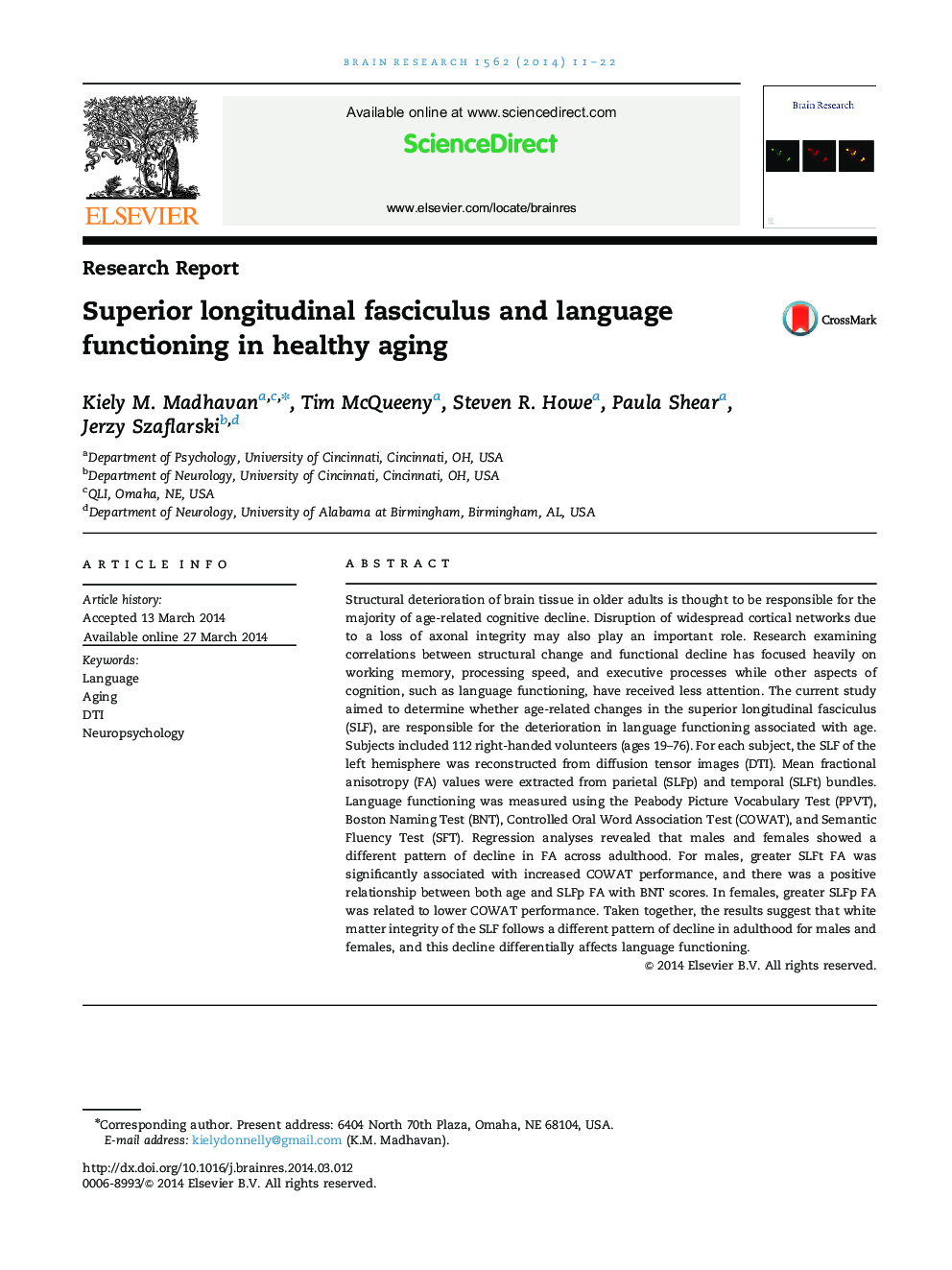| Article ID | Journal | Published Year | Pages | File Type |
|---|---|---|---|---|
| 4324295 | Brain Research | 2014 | 12 Pages |
•Integrity of the left superior longitudinal fasciculus was assessed across adulthood.•Males and females show a different pattern of decline in fractional anisotropy.•White matter integrity affects language performance differently for males and females.
Structural deterioration of brain tissue in older adults is thought to be responsible for the majority of age-related cognitive decline. Disruption of widespread cortical networks due to a loss of axonal integrity may also play an important role. Research examining correlations between structural change and functional decline has focused heavily on working memory, processing speed, and executive processes while other aspects of cognition, such as language functioning, have received less attention. The current study aimed to determine whether age-related changes in the superior longitudinal fasciculus (SLF), are responsible for the deterioration in language functioning associated with age. Subjects included 112 right-handed volunteers (ages 19–76). For each subject, the SLF of the left hemisphere was reconstructed from diffusion tensor images (DTI). Mean fractional anisotropy (FA) values were extracted from parietal (SLFp) and temporal (SLFt) bundles. Language functioning was measured using the Peabody Picture Vocabulary Test (PPVT), Boston Naming Test (BNT), Controlled Oral Word Association Test (COWAT), and Semantic Fluency Test (SFT). Regression analyses revealed that males and females showed a different pattern of decline in FA across adulthood. For males, greater SLFt FA was significantly associated with increased COWAT performance, and there was a positive relationship between both age and SLFp FA with BNT scores. In females, greater SLFp FA was related to lower COWAT performance. Taken together, the results suggest that white matter integrity of the SLF follows a different pattern of decline in adulthood for males and females, and this decline differentially affects language functioning.
